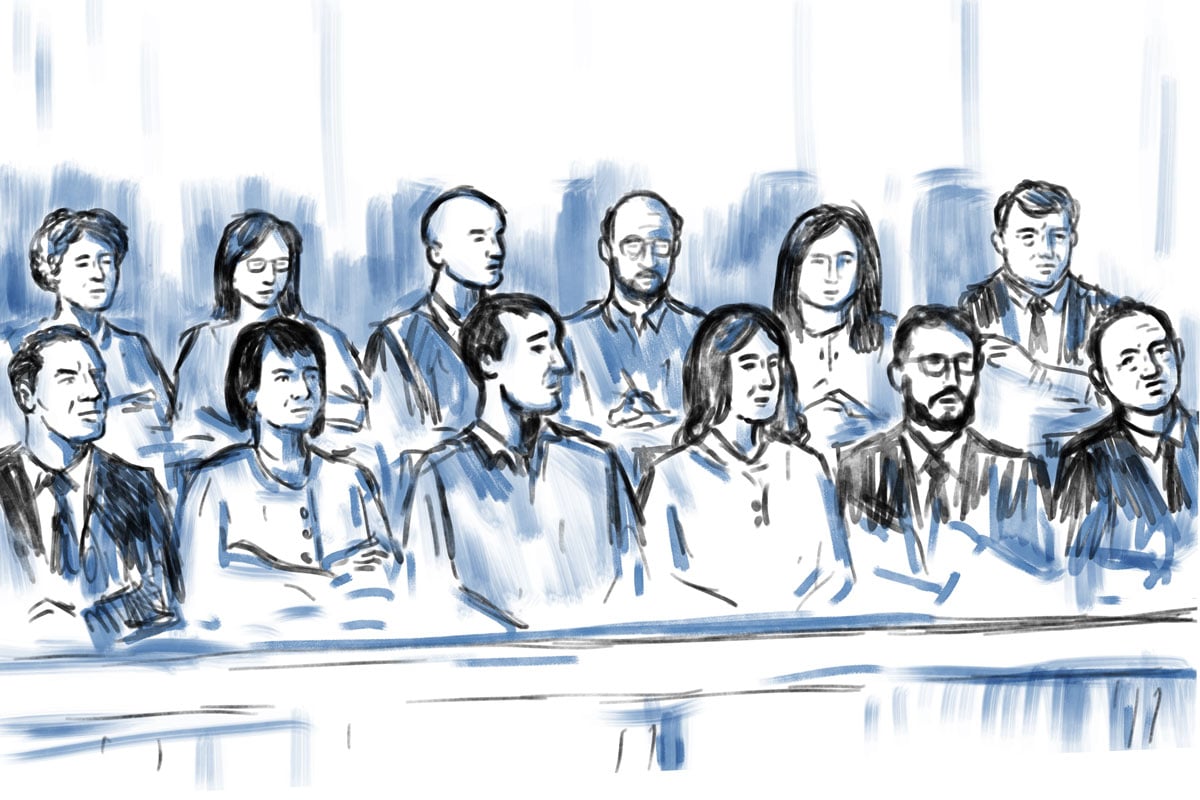Frequently Asked Questions
At New York Injury Law, we understand that navigating a personal injury claim can be overwhelming. You likely have many questions about your rights, the legal process, and what to expect when pursuing compensation for your injuries. To help, we’ve compiled answers to some of the most common questions our clients ask. If you don’t see the information you need here, feel free to contact us.
General Personal Injury Questions
How much does it cost to hire a personal injury lawyer?
We work on a contingency fee basis, meaning you pay nothing unless we win your case. Our fee is a percentage of your final settlement or court award.
What is a personal injury case?
A personal injury case arises when someone is harmed due to another person’s negligence, recklessness, or intentional actions. These cases often involve car accidents, slip and falls, medical malpractice, workplace injuries, and defective products.
How do I know if I have a valid personal injury case?
If you were injured due to someone else’s negligence and suffered damages (medical bills, lost wages, pain and suffering), you may have a valid case. Contact our team for a free consultation to evaluate your claim.
What should I do after an accident or injury?
- Seek medical attention immediately.
- Report the incident (to the police, employer, or property owner, depending on the case).
- Gather evidence (photos, witness statements, accident reports).
- Do not speak to insurance companies without consulting a lawyer.
- Contact an experienced personal injury attorney as soon as possible.
How much is my personal injury case worth?
The value of a case depends on factors like medical expenses, lost wages, pain and suffering, the severity of injuries, and the level of negligence involved. We analyze every case thoroughly to seek maximum compensation.
How long do I have to file a personal injury claim in New York?
The statute of limitations for most personal injury cases in New York is three years from the date of the injury. However, medical malpractice cases have a shorter deadline, and claims against government entities have special requirements. It’s important to act quickly.
Do I need a lawyer for a personal injury claim?
While you can file a claim on your own, an experienced lawyer increases your chances of securing full compensation by handling negotiations, gathering evidence, and fighting against insurance companies that try to minimize payouts.
Can I still file a claim if I was partially at fault for my injury?
Yes. New York follows comparative negligence, meaning you can recover compensation even if you were partially at fault, though your compensation may be reduced by your percentage of fault.
How long does a personal injury case take?
Some cases settle in months, while others take years, depending on complexity, severity of injuries, and whether litigation is necessary.
Can I sue if my child was injured at school or daycare?
If negligence played a role (e.g., inadequate supervision, unsafe conditions), you may have a case against the school, daycare, or a third party.
What happens if the person who caused my injury doesn’t have insurance?
You may still recover compensation through uninsured/underinsured motorist coverage, personal assets, or other legal avenues.
Do I have to go to court for a personal injury case?
Most cases settle before trial. However, if a fair settlement isn’t reached, we are fully prepared to take your case to court.
What types of damages can I recover in a personal injury lawsuit?
You may be entitled to compensation for medical expenses, lost wages, pain and suffering, emotional distress, and punitive damages in extreme cases of negligence.
Car Accidents & Ridesharing Injuries
What should I do if I’m injured in a car accident in New York?
First, call 911 and seek medical attention. Gather evidence, exchange insurance details, and file a police report. Avoid admitting fault. Then, contact a personal injury attorney before speaking with insurance companies.
Who is liable in a ridesharing accident (Uber/Lyft)?
Car Accidents & Ridesharing Injuries
Liability depends on whether the driver was actively transporting a passenger, waiting for a ride request, or off-duty. Uber and Lyft provide insurance coverage for accidents, but legal complexities make these cases challenging. Our team can help navigate your claim.
Medical Malpractice & Defective Products
What qualifies as medical malpractice?
Medical malpractice occurs when a healthcare provider’s negligence results in harm, such as surgical errors, misdiagnosis, medication errors, or failure to diagnose a serious condition.
Can I sue for injuries caused by a defective product?
Yes. If a defective product (such as a faulty medical device, car part, or household appliance) caused harm, you may have a product liability case against the manufacturer, distributor, or retailer.
Workplace & Toxic Exposure Injuries
Can I sue my employer for a workplace injury?
In most cases, workers’ compensation covers workplace injuries, preventing lawsuits against employers. However, if a third party (e.g., equipment manufacturer) was responsible for your injury, you may be able to file a personal injury claim.
What is a toxic tort claim?
A toxic tort claim involves injuries caused by exposure to hazardous substances, such as asbestos, lead, pesticides, or contaminated water. Victims can seek compensation from negligent companies responsible for the exposure.
Slip, Trip & Fall / Premises Liability Cases
Who is responsible for a slip and fall accident?
Property owners are responsible for maintaining safe conditions. If their negligence (e.g., wet floors, broken stairs, poor lighting) led to your injury, you may have a premises liability case.
What evidence is needed for a slip and fall case?
Photos of the hazardous condition, incident reports, medical records, and witness statements can strengthen your claim.
Need More Answers? Contact New York Injury Law Today!
If you or a loved one has suffered an injury due to someone else’s negligence, we are here to help. Contact us for a free consultation today!
Latest Posts

A Jury Listened — And Delivered Justice for an Injured Worker
$2.3 Million Verdict | Ulster County Supreme Court At New York Injury Law, LLP, we represent people who do the hard, often dangerous work that keeps our communities running. Recently,

Understanding New York Law: What You Need to Know About Rideshare Crashes
If you are in a crash with an Uber or Lyft, the insurance coverage is different from a regular car crash — and it can make a big difference in

$3,250,000 WIN For Cyclist Injured in Accident with Firetruck
When an insurance company offered $600,000 to settle a serious motor vehicle crash case, attorney John DeGasperis, founding partner of New York Injury Law, said “Not enough.” The Case: Bicyclist